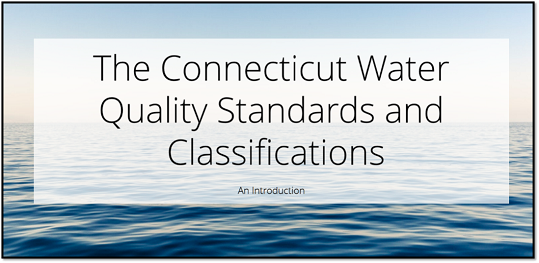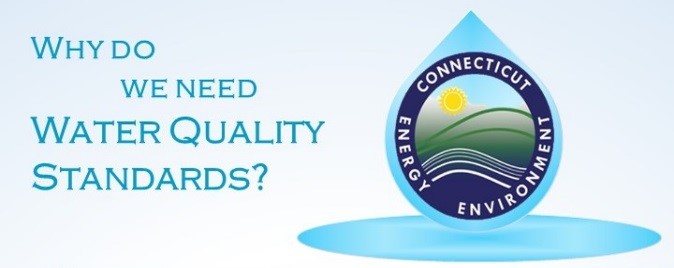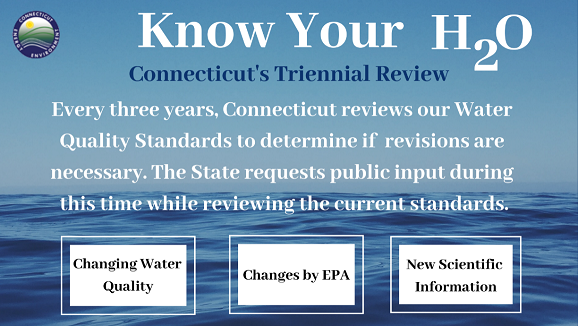The Connecticut Water Quality Standards and Classifications

Select the image to learn more about the CT Water Quality Standards
The Connecticut Water Quality Standards:

- Address both surface and ground waters.
- Are required by Section 303(c) of the federal Clean Water Act.
- Convey State policies regarding designated uses and related classifications of Connecticut’s water resources.
- Provide the criteria necessary to support designated uses.
The Water Quality Standards form the foundation of Connecticut’s water management programs, including:
- National Pollution Discharge Elimination System (NPDES) permit issuance program
- Water quality certification programs
- Remediation programs
- State-led monitoring and assessment programs
- Total Maximum Daily Load development
The Connecticut Water Quality Standards Triennial Review
This process occurs every three years and provides an opportunity to:
- Request public input on the Standards.
- Update the Standards to include the latest scientific understanding of water pollution effects.
- Incorporate changes in state and federal law.
CT DEEP 2019 Triennial Review
Related Information
- CT Water Quality Classification Interactive Map
-
Connecticut Water Quality Standards Regulations adopted October 10, 2013
- Water Quality Classification Maps
- CT DEEP Ground and Surface Water Quality GIS Data
The water quality classification information is located under the Environmental: Natural Resource Management header on this web page - Federal EPA Water Quality Standards (leaving CT DEEP web site)
- 2019 Triennial Review of the Connecticut Water Quality Standards
- Triennial Review Process
Join our Water Quality Planning ListServ to receive updates and information about water quality.
Contact us for more information at the CT DEEP Bureau of Water Protection and Land Reuse at (860) 424-3020.
Content last updated on September 4, 2020.



